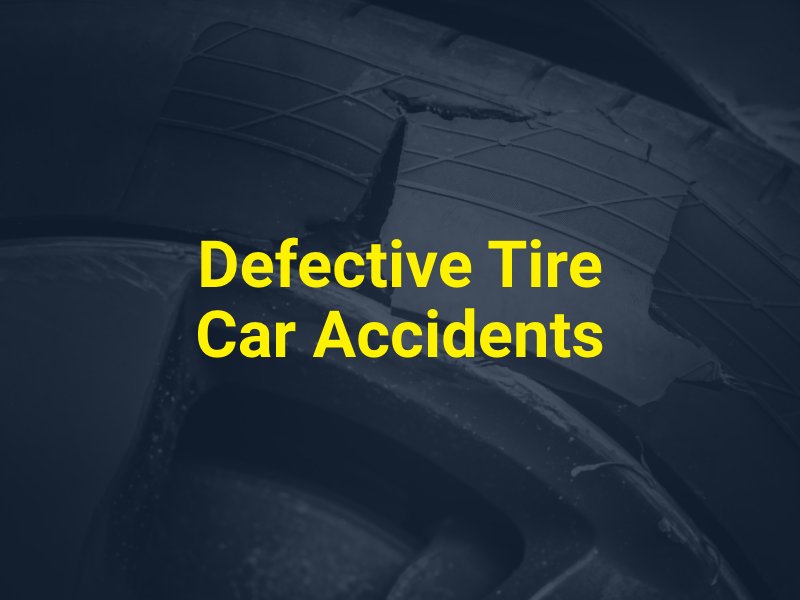Defective tires pose a significant risk to road safety, potentially leading to severe car accidents and life-altering injuries. Understanding these risks is crucial for drivers to take the necessary precautions and hold responsible parties accountable in case of an accident.

Defective tires can result from several common issues, each contributing to potential accidents and hazards on the road. Below are some of these causes:
Determining liability in the event of a defective tire car accident is crucial for ensuring that victims receive appropriate compensation. Several parties could potentially be held responsible, depending on the circumstances surrounding the defect and subsequent accident.
Tire manufacturers can be held responsible for producing defective tires that lead to accidents. Issues such as manufacturing defects, design flaws, or inadequate quality control can directly implicate the manufacturer. When a defect arises from the manufacturing process or underlying design, the manufacturer may be required to compensate the victims for any damages or injuries resulting from the accident.
Retailers who sell defective or expired tires also bear responsibility. If a retailer knowingly or negligently sells tires that are not fit for use, they can be held liable for any ensuing accidents. This includes selling aging tires that have deteriorated due to improper storage or failing to inform consumers about the importance of tire maintenance and replacement.
Improper installation of tires by a mechanic or other installation company can lead to serious accidents. If an accident is determined to have resulted from incorrect mounting, balancing, or inflating of tires, the installation company or mechanic could be held liable. Proper installation is essential for tire performance, and negligence in this area can have dire consequences.
In some cases, the vehicle owner may be partially liable for failing to maintain the tires properly. This includes not adhering to the tire’s recommended lifespan, neglecting to check tire pressure, or ignoring visible wear and damage. Vehicle owners have a responsibility to ensure their tires are in good condition to prevent accidents on the road.
Victims of accidents caused by defective tires are entitled to various forms of compensation to help mitigate the impact of their injuries and damages. Understanding the types of compensation available is crucial for pursuing a successful claim. Common damages recovered include:
To determine exactly what you’re entitled to, it’s important to reach out to a personal injury lawyer as soon as possible. For help with your defective tire claim, contact us today to schedule a free consultation.